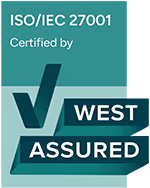The origin of the word ‘currency’ comes from the Latin “to run” or “to flow”. Fitting then that today, currency and the flow of money between nations is what makes the world “go around.”
Many factors affect the flow of currency; everything from inefficiencies in banking networks to bad debtors play a part. These factors can be forecasted and prepared for, but what happens when countries are flagged as high-risk by the government?
Moving money in and out of these high-risk countries requires strict regulatory compliance, close monitoring of highly volatile exchange rates, and careful navigation of political and economic instability.
Let’s explore four mitigation strategies that can pave the way for successful payments to and from high-risk countries.
Implement Enhanced Due Diligence to mitigate criminality

Every financial institution engages in standard forms of due diligence, it’s a fundamental requirement for local regulations. However, the risk of conducting business within certain countries is heightened due to political instability and terrorist financing.
In these markets, there is limited transparency and availability of reliable information about customers and their counterparts. Coupled with this are often weak Anti-Money Laundering (AML) and Counter-Terrorism Financing (CTF) frameworks, increasing scrutiny from regulators. Therefore, a more stringent approach to due diligence is needed in the form of Enhanced Due Diligence (EDD) to assess and mitigate risks.
In high-risk areas, know-your-customer (KYC) and AML checks are required for both payers and beneficiaries. Certain countries and territories are subject to international sanctions. And, to avoid risking hefty fines and legal action, companies processing payments to and from high-risk areas must be vigilant that their clients' beneficiaries are not domiciled in those sanctioned regions.
However, conducting these checks can be more challenging and resource-intensive for institutions. Thus, the “rock and hard place” situation of high-risk countries is clear to see.
Luckily, modern fintechs have taken vast steps forward to make EDD more accessible to businesses and institutions. Automated AML and KYC checks on payments on both sides of the equation ensure all transactions are compliant. Many of these checks can be run on international records, as a criminal in one country may not be known as a criminal in another, unlike the traditional routes, which can often only check their own national records.
Use Intermediaries to facilitate transactions

The traditional correspondent banking infrastructure faces operational challenges in high-risk regions. Few international banks may be willing to operate in these areas, reducing the available channels for your transactions to be processed. And a lack of technological advancements in the sector can slow down that processing, increasing the risk of fraud.
For example, to establish a banking relationship in Nigeria, a business would need to open an account in a regional bank there if its local institutions have no existing relationships. This process can take weeks, if not longer, and. This process can take weeks, if not longer. And safety concerns remain within that high-risk region.
Employing the expertise of an intermediary to process transactions to and from high-risk countries can take the challenge out of these operations.
Some intermediaries have pre-existing local relationships with institutions such as the Bank of Nigeria to accept payments and deposit them into a local account controlled by the intermediary. They then collect all the payments from their clients, move the funds through their network, and disperse them to clients in the high-risk region, or vice versa. All of this happens within a regulated network that has enhanced due diligence compliance checks embedded within it.
Ultimately, the infrastructure you use to move money matters. The more integrated it is, the safer the money flow. Businesses and banks alike can leverage that infrastructure. These new, more direct payment rails to high-risk countries have been created based on acquiring licenses. Faster payment processing time, transparent operations, and payment tracking allow payers to know exactly how much they’re paying and beneficiaries to know when they will be paid. Although external market factors can be even more unpredictable.
Pacify the risks of political and economic instability

Political and economic instability in high-risk countries poses multiple challenges to global businesses, often leading to financial instability and losses. High volatility in exchange rates can negatively affect international transactions. This makes it difficult to accurately forecast revenue and expenses.
Companies dealing with multiple currencies face the risk of sudden depreciation or appreciation, which can affect their bottom line. Moreover, inflation, particularly hyperinflation, can rapidly erode the real value of payments, making it difficult for businesses to maintain consistent pricing.
Political risks, such as regime changes, civil unrest, or the nationalization of industries, can further disrupt payment flows and operational stability. These events can lead to unexpected regulatory changes, asset acquisition by the government, or barriers to extracting profits, all of which threaten the financial health of businesses.
Businesses can use various financial products to manage currency risk, such as virtual accounts. By holding currencies and exchanging them when rates are favorable potential losses can be limited. These tools help companies stabilize their cash flows and budget more accurately, even in volatile markets.
Financial innovations are transforming how businesses deal with inflation and other economic uncertainties. Digital payment solutions offer alternatives to traditional banking systems, which can be particularly valuable in countries with unstable financial systems. By providing more control over payment methods and currencies, fintech allows businesses to navigate hyperinflation and currency devaluation more effectively. And they offer more robust cybersecurity to combat the ever-growing threat of bad actors in high-risk countries.
Leverage advanced cybersecurity technology

In the digital age, the risk of fraud and cyberattacks has become a critical concern for businesses, especially when operating in regions with a higher prevalence of fraud. Fraudulent activities can take various forms, such as identity theft and payment fraud. To combat these activities, robust verification and validation processes are needed.
The challenge is made worse by cybercriminals' growing sophistication. They employ advanced tactics to exploit vulnerabilities in digital systems. Consequently, businesses must adopt stringent cybersecurity measures to protect sensitive data and financial transactions from unauthorized access and breaches.
Advance technology for fraud detection, transaction monitoring, and overall cybersecurity plays a crucial role in addressing these challenges. Machine learning algorithms are now integral to detecting fraudulent activities in real-time. They analyze vast amounts of data to identify unusual patterns or anomalies that may indicate fraudulent behavior, enabling businesses to respond swiftly to potential threats.
Enhanced tools for cybersecurity, such as multi-factor authentication (MFA) and encryption technologies add multiple layers of security. Many platforms only allow authorized individuals to access sensitive information. Fintech platforms also facilitate continuous transaction monitoring, enabling businesses to track and analyze transactions across different channels and geographies. This holistic approach helps detect and mitigate risks promptly, reducing the likelihood of successful cyber-attacks.
Safer payment flows in high-risk markets
Embracing fintech technologies enables money once again “to flow” freely in these markets. And, by carefully navigating these challenges, businesses can manage payments to and from high-risk countries more effectively, albeit with heightened diligence and precaution.
To manage payments to and from high-risk countries more effectively, sign up to the TransferMate Platform here, or contact the team for a demo.






.jpg)

